Filter by
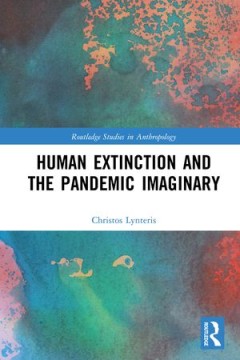
Human Extinction and the Pandemic Imaginary
This book develops an examination and critique of human extinction as a result of the ‘next pandemic’ and turns attention towards the role of pandemic catastrophe in the renegotiation of what it means to be human. Nested in debates in anthropology, philosophy, social theory and global health, the book argues that fear of and fascination with the ‘next pandemic’ stem not so much from an …
- Edition
- -
- ISBN/ISSN
- 9781000698886
- Collation
- -
- Series Title
- -
- Call Number
- -
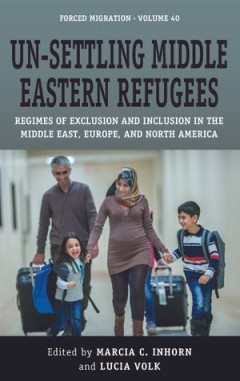
Un-settling Middle Eastern Refugees: Regimes of Exclusion and Inclusion in th…
Since the Iraq war, the Middle East has been in continuous upheaval, resulting in the displacement of millions of people. Arriving from Afghanistan, Iraq, Palestine, and Syria in other parts of the world, the refugees show remarkable resilience and creativity amidst profound adversity. Through careful ethnography, this book vividly illustrates how refugees navigate regimes of exclusion, includi…
- Edition
- -
- ISBN/ISSN
- 9781800730564
- Collation
- -
- Series Title
- -
- Call Number
- 301 UNS u
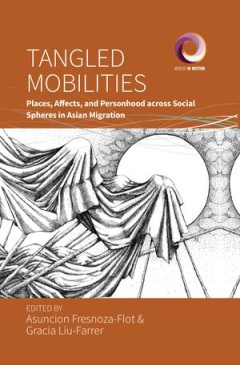
Tangled Mobilities: Places, Affects, and Personhood across Social Spheres in …
The emotional, social, and economic challenges faced by migrants and their families are interconnected through complex decisions related to mobility. Tangled Mobilities examines the different crisscrossing and intersecting mobilities in the lives of Asian migrants, their family members across Asia and Europe, and the social spaces connecting these regions. In exploring how the migratory process…
- Edition
- -
- ISBN/ISSN
- 9781800736689
- Collation
- -
- Series Title
- -
- Call Number
- 301 TAN t
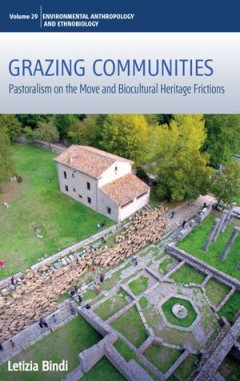
Grazing Communities: Pastoralism on the Move and Biocultural Heritage Frictions
Pastoralism is a diffused and ancient form of human subsistence and probably one of the most studied by anthropologists at the crossroads between continuities and transformations. The present critical discourse on sustainable and responsible development implies a change of practices, a huge socio-economic transformation, and the return of new shepherds and herders in different European regions.…
- Edition
- -
- ISBN/ISSN
- 9781800736672
- Collation
- -
- Series Title
- -
- Call Number
- 301 GRA g
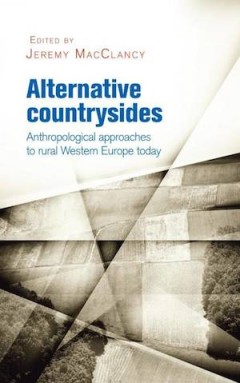
Alternative countrysides Anthropological approaches to rural Western Europe …
A fresh anthropological look at a central but neglected topic: the profound changes in rural life throughout Western Europe today. As locals leave for jobs in cities they are replaced by neo-hippies, lifestyle-seekers, eco-activists, and labour migrants from beyond the EU. With detailed ethnographic examples, contributors analyse new modes of living rurally and emerging forms of social organisa…
- Edition
- -
- ISBN/ISSN
- 9780719096846
- Collation
- -
- Series Title
- -
- Call Number
- -
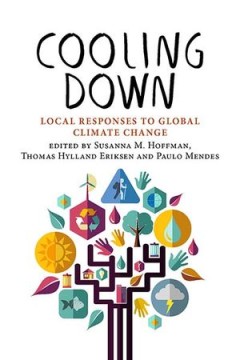
Cooling Down: Local Responses to Global Climate Change
Climate change is a slowly advancing crisis sweeping over the planet and affecting different habitats in strikingly diverse ways. While nations have signed treaties and implemented policies, most actual climate change assessments, adaptations, and countermeasures take place at the local level. People are responding by adjusting their practices, livelihoods, and cultures, protesting and migratin…
- Edition
- -
- ISBN/ISSN
- 9781800731899
- Collation
- -
- Series Title
- -
- Call Number
- 301 COO c
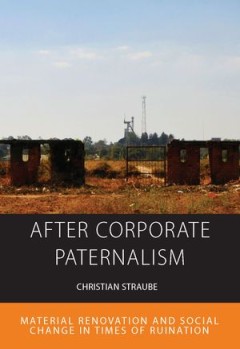
After Corporate Paternalism: Material Renovation and Social Change in the Tim…
In this ethnographic study of post-paternalist ruination and renovation, Christian Straube explores social change at the intersection of material decay and social disconnection in the former mine township Mpatamatu of Luanshya, one of the oldest mining towns on the Zambian Copperbelt. Touching on topics including industrial history, colonial town planning, social control and materiality, gender…
- Edition
- -
- ISBN/ISSN
- 9781800731332
- Collation
- -
- Series Title
- -
- Call Number
- 301 STR a
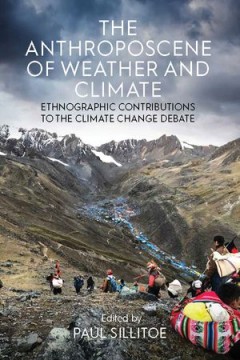
The Anthroposcene of Weather and Climate: Ethnographic Contributions to the C…
While it is widely acknowledged that climate change is among the greatest global challenges of our times, it has local implications too. This volume forefronts these local issues, giving anthropology a voice in this great debate, which is otherwise dominated by natural scientists and policy makers. It shows what an ethnographic focus can offer in furthering our understanding of the lived realit…
- Edition
- -
- ISBN/ISSN
- 9781800732780
- Collation
- -
- Series Title
- -
- Call Number
- 301 ANT a
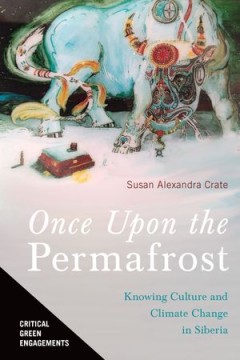
Once Upon the Permafrost: Knowing Culture and Climate Change in Siberia
Once Upon the Permafrost is a longitudinal climate ethnography about “knowing” a specific culture and the ecosystem that culture physically and spiritually depends on in the twenty-first-century context of climate change. The author, anthropologist Susan Alexandra Crate, has spent three decades working with Sakha, the Turkic-speaking horse and cattle agropastoralists of northeastern Siberia…
- Edition
- -
- ISBN/ISSN
- 9780816541546
- Collation
- -
- Series Title
- -
- Call Number
- 301 CRA o
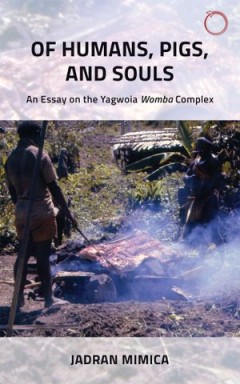
Of Humans, Pigs, and Souls: An Essay on the Yagwoia Womba Complex
For the Yagwoia-Angan people of Papua New Guinea womba is a malignant power with the potential to afflict any soul with cravings for pig meat and human flesh. Drawing on long-term research among the Yagwoia, and in an analysis informed by phenomenology and psychoanalysis, Jadran Mimica explores the womba complex in its local cultural-existential determinations and regional permutations. He atte…
- Edition
- -
- ISBN/ISSN
- 9781912808311
- Collation
- -
- Series Title
- -
- Call Number
- 301 MIM h
 Computer Science, Information & General Works
Computer Science, Information & General Works  Philosophy & Psychology
Philosophy & Psychology  Religion
Religion  Social Sciences
Social Sciences  Language
Language  Pure Science
Pure Science  Applied Sciences
Applied Sciences  Art & Recreation
Art & Recreation  Literature
Literature  History & Geography
History & Geography